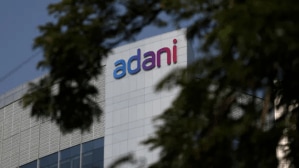Roads: reworked PPP pact holds key to private revival
The bill proposes heavy penalties such as a Rs 25,000 fine for the first instance of drunk driving.
With private sector confidence in roads projects drying out in the past two years and over 15 national highway projects offered under the public-private partnership (PPP) route failing to get any bids so far this fiscal, it’s a divided house on the likely role of PPP projects in road construction during 2015.
Ministry of road transport officials are expecting private participation will pick up soon next year and have almost wrapped up the task of modifying the Model Concession Agreement, which according to industry players loaded risks heavily on the private sector without sufficient penalties for the state to deliver land and other clearances on time.
“We have gone through the entire MCA and hardly 3-4 issues remain where we haven’t been able to reach a consensus. In the next week or so, we should be able to approach the cabinet secretary for resolution of the same. The revised MCA, in addition to further safeguarding the interests of the private sector, will also reduce litigation. Some clauses were so loosely worded previously that the authority also ended up taking risks at places where it was not meant to take risks, and was hauled to court over full stops and commas,” said Vijay Chhibber, Secretary, ministry of road transport and highways said.
He added that it was “not such a great idea” to award majority of the projects on EPC mode for second straight year, especially since the ministry is stretched for funds and needs private participation for the sector to pick up. The ministry is also working on variations of hybrid build–operate–transfer (BOT) (Annuity) — also PPP—to draw in the private sector in 2015.
However, according to Manish Agarwal, Partner at PwC India, private investment will return only in later part of the year. “Award of EPC contracts for road projects would start early on but private investment will probably return only in the later part of the year, as financial stress gets addressed, and de-risked PPP models (like Hybrid Annuity) become mainstream,” he said.
Vinayak Chatterjee, chairman, Feedback Infra, echoed a similar sentiment, saying that “it is largely going to be an EPC year, but that funds should not be a problem.” The minister for road transport and highways, Nitin Gadkari, has claimed that 30 km of roads will be constructed per day by 2016, with the government actively looking into the problems of land acquisition, environment and railway over/under bridge clearances since it came into power six months ago.
According to a study by CRISIL research released earlier this month, of the 16 projects awarded in 2013-14, work has already begun on 12, as compared to projects awarded in 2011-12 and 2012-13, wherein work had begun only on 10 per cent and 18 per cent of them respectively, at a similar juncture.
Additionally, in December, motor vehicles (amendment) bill 2014, which will legalise e-rickshaws, was passed in Lok Sabha in the winter session of the parliament but could not get passed in Rajya Sabha, with the government deciding to promulgate an ordinance on the same.
The Road Transport and Safety Bill 2014 has also been sent by the government to the cabinet for approval and the roads ministry is hoping to introduce it in the next session of parliament. The bill proposes heavy penalties such as a Rs 25,000 fine for the first instance of drunk driving, and Rs 50,000 for the second.
According to government officials, the hike in penalties was aimed at reducing the road accidents which was one of the biggest reasons for casualties on a daily basis. In India, almost 5 lakh accidents happen annually with almost 1.4 lakh casualties.






- 01
- 02
- 03
- 04
- 05

























